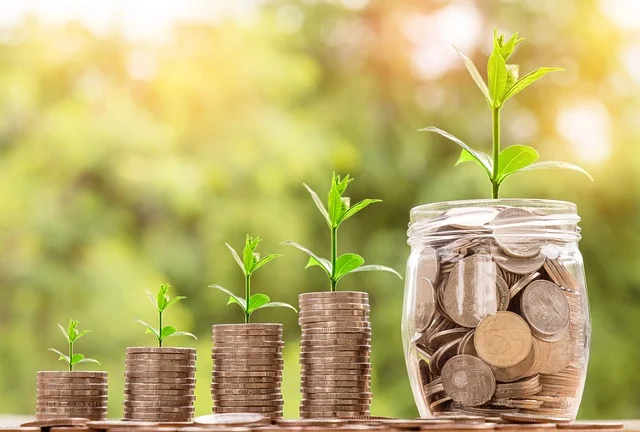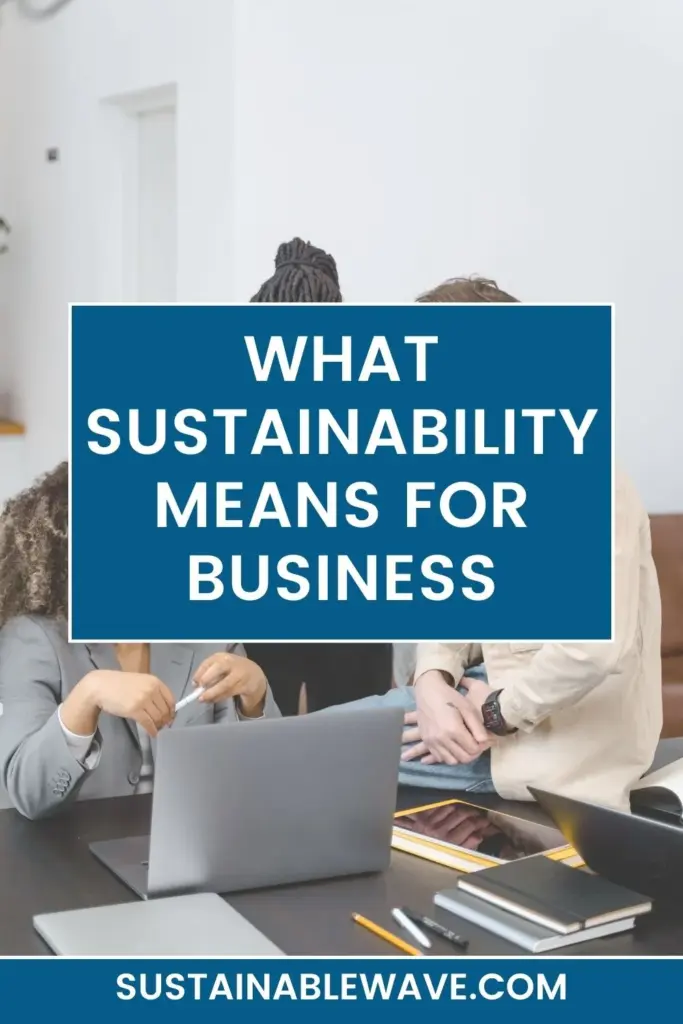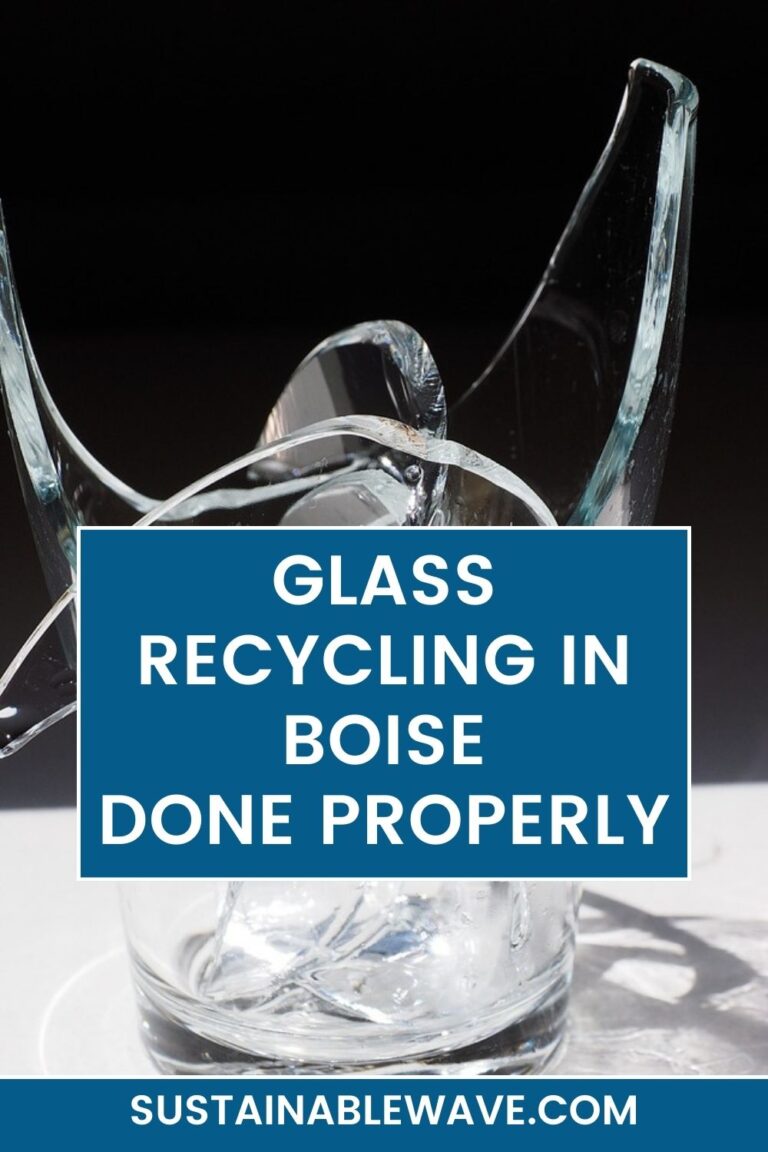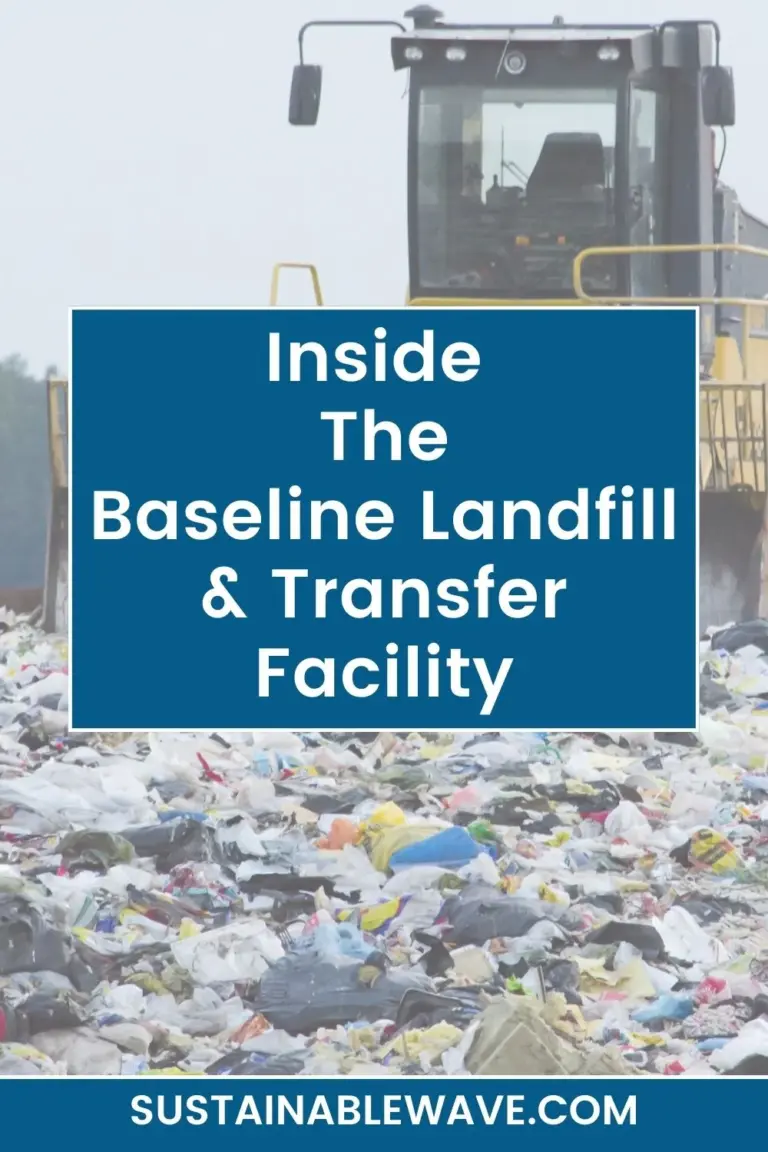In today’s rapidly changing world, sustainability isn’t just a buzzword; it’s a necessity. For businesses, understanding and integrating sustainability can mean the difference between thriving and merely surviving. But what does sustainability truly mean for businesses?
Sustainability for business means adopting practices that ensure long-term profitability while considering environmental, social, and economic impacts, ensuring a harmonious balance between growth and responsible stewardship.
With that short introduction out of the way, let’s dig a bit deeper into this subject, which could have a huge impact on how you should run your business.
What Sustainability Means for Business

Sustainability, at its core, is about meeting the needs of the present without compromising the ability of future generations to meet their own needs.
For businesses, this translates to practices that ensure long-term profitability while taking into account environmental, social, and economic impacts.
The Evolution of Sustainability in Business
The concept of sustainability has deep roots, but its application in the business world has seen a dynamic evolution, especially in the last few decades.
The idea of sustainability isn’t novel. Ancient civilizations, from the terraced farming practices of the Incas to the water management systems of the Indus Valley, inherently understood the importance of harmonizing with nature.
They recognized that over-exploitation would lead to resource depletion and, ultimately, their own decline. However, with the dawn of the Industrial Revolution, the focus shifted. Rapid industrialization, urbanization, and technological advancements led to unprecedented growth and prosperity.
But this came at a cost. The environment was often treated as an inexhaustible resource, and social inequalities widened.
Fast forward to the late 20th century, and the repercussions of unchecked industrial growth became glaringly evident. Environmental crises, social upheavals, and economic disparities prompted a rethinking of business practices.
The Brundtland Report of 1987, which introduced the concept of “sustainable development,” was a turning point. It emphasized that economic growth should not come at the expense of the environment or social equity.
Today, sustainability in business is not just about environmental conservation. It’s a holistic approach that integrates economic performance, social responsibility, and environmental stewardship. Businesses now recognize that long-term success is intertwined with sustainable practices.
Why Sustainability is Crucial for Modern Businesses
In the contemporary era, sustainability is not just a moral imperative but a strategic one.
Here’s why:
Our planet is at a tipping point. Issues like climate change, deforestation, water scarcity, and biodiversity loss are not distant threats but immediate challenges. Businesses contribute to these problems, but they can also be part of the solution. By adopting sustainable practices, businesses can mitigate their environmental impact, ensuring a healthier planet for future generations.
The modern consumer is informed, discerning, and values-driven. They’re not just looking for quality products but are keenly interested in the ethos of the brands they support. A Nielsen report found that 66% of global consumers are willing to pay more for sustainable goods. This underscores that sustainability is not just good for the planet but good for business.
While transitioning to sustainable practices might entail initial costs, the long-term benefits are manifold. Sustainable businesses often see reduced operational costs, increased employee loyalty, and access to new market segments. Moreover, with increasing regulatory pressures and potential carbon taxes, sustainability is also a way to future-proof businesses.
The Three Pillars of Sustainability
Often referred to as the “Triple Bottom Line,” the three pillars of sustainability provide a framework for businesses to evaluate their overall performance.
Social
This pillar emphasizes the importance of businesses being socially responsible. It’s about ensuring fair labor practices, promoting diversity and inclusion, and fostering a positive workplace culture. Beyond the confines of the organization, it also means engaging with the broader community, supporting social justice initiatives, and ensuring that business practices don’t adversely impact society.
Environmental
This is perhaps the most recognized pillar. It focuses on businesses minimizing their ecological footprint. This could involve adopting renewable energy sources, reducing waste, conserving water, and ensuring that supply chains are environmentally friendly. It’s about recognizing that our planet’s resources are finite and that businesses have a role in safeguarding them.
Economic
While businesses need to be socially responsible and environmentally conscious, they also need to be economically viable. This pillar ensures that businesses operate efficiently, create jobs, innovate, and contribute positively to the economy. However, the key is to balance profitability with the other two pillars, ensuring that economic gains don’t come at the expense of social well-being or environmental health.
Challenges in Implementing Sustainability

While the merits of sustainability are evident, the journey towards it isn’t without its hurdles. Businesses, especially those transitioning from traditional models, often face a myriad of challenges.
Initial Costs
Transitioning to sustainable practices often requires a significant upfront investment. Whether it’s retrofitting facilities to be energy-efficient, investing in renewable energy sources, or overhauling supply chains to be more sustainable, the initial costs can be daunting for many businesses. While these investments typically pay off in the long run, they can be a deterrent, especially for small and medium-sized enterprises with limited capital.
Resistance to Change
Change, even when it’s for the better, often meets resistance. Employees accustomed to certain ways of working might be resistant to new sustainable practices. There might also be a lack of knowledge or understanding about why these changes are essential, leading to skepticism.
Finding Authenticity
In a world where consumers are increasingly conscious of greenwashing (a deceptive practice where companies overstate their eco-friendly credentials), businesses face the challenge of proving their sustainability initiatives are genuine. It’s not enough to adopt sustainable practices; businesses must also communicate them transparently to build trust.
Complex Supply Chains
For businesses operating globally, ensuring sustainability can be complex due to intricate supply chains. Ensuring every link in the chain adheres to sustainable practices, from raw material sourcing to end-product delivery, can be a monumental task.
Regulatory and Policy Uncertainties
While many governments are pushing for sustainable practices, regulatory frameworks can vary widely across regions. Navigating this landscape and ensuring compliance can be challenging for businesses operating in multiple jurisdictions.
Benefits of a Sustainable Business Model
Despite the challenges, the shift towards sustainability brings with it a plethora of benefits, both tangible and intangible.
Enhanced Brand Image
In today’s market, a company’s reputation is invaluable. Adopting sustainable practices and being transparent about them enhances a brand’s image. Consumers are more inclined to trust and support businesses they perceive as responsible and ethical.
Increased Customer Loyalty
Sustainability isn’t just a business strategy; it’s a value system. When consumers identify with a brand’s values, they’re more likely to remain loyal to it. This not only ensures repeat business but also turns customers into brand advocates.
Financial Gains
While there are initial costs associated with transitioning to sustainable practices, the long-term financial benefits are significant. From reduced operational costs due to energy savings to tapping into new market segments of eco-conscious consumers, sustainability can bolster the bottom line.
Employee Satisfaction and Retention
Employees, especially the younger workforce, prefer working for companies that align with their values. Sustainable businesses often report higher employee satisfaction, leading to reduced turnover and associated recruitment costs.
Innovation and Competitive Advantage
The push for sustainability often drives innovation. Whether it’s developing eco-friendly products or finding efficient ways of working, sustainability can be a catalyst for innovation, giving businesses a competitive edge.
Future-proofing the Business
With increasing regulatory pressures, potential carbon taxes, and resource constraints, businesses that adopt sustainable practices are better positioned to navigate future challenges. They are more resilient to external shocks and are prepared for a world where sustainability isn’t just preferred but essential.
Tools and Resources for Sustainable Business Practices
The path to sustainability is made easier with the right tools and resources.
Fortunately, in today’s digital age, businesses have access to a plethora of tools that can guide and streamline their sustainability efforts.
Certifications
Certifications like Fair Trade, Organic, and Energy Star provide businesses with a framework to follow and a way to showcase their commitment to sustainability. These certifications not only set standards but also offer credibility in the eyes of consumers.
Consultancies
Several firms specialize in guiding businesses through their sustainability journey. These consultancies offer expertise in areas like carbon footprint measurement, sustainable supply chain management, and corporate social responsibility strategy.
Technology Solutions
From software that tracks energy consumption to AI-driven tools that optimize resource use, technology plays a pivotal role in sustainable business practices. These tools offer insights, analytics, and actionable recommendations to reduce waste and enhance efficiency.
Collaborative Platforms
Platforms like the Sustainable Brands community or the World Business Council for Sustainable Development offer businesses a space to collaborate, share best practices, and learn from peers.
Educational Resources
Continuous learning is crucial. Online courses, workshops, and seminars on sustainability topics can help businesses stay updated with the latest trends and best practices.
How Can a Business Start Its Sustainability Journey?
Starting the sustainability journey might seem daunting, but with a structured approach, it becomes manageable and rewarding.
- Self-Assessment: Begin with an internal audit of current practices. Understand where the business stands in terms of environmental impact, social responsibility, and economic viability.
- Set Clear Goals: Define what sustainability means for the business. Whether it’s reducing carbon emissions by a certain percentage or ensuring ethical sourcing, clear goals provide direction.
- Engage Stakeholders: Sustainability is a collective effort. Engage employees, suppliers, customers, and shareholders in the process. Their insights, feedback, and buy-in are invaluable.
- Develop a Strategy: Based on the assessment and goals, develop a comprehensive sustainability strategy. This should include short-term initiatives and long-term plans.
- Monitor and Report: Regularly monitor the progress towards sustainability goals. Transparent reporting, both internally and externally, builds trust and ensures accountability.
- Iterate: Sustainability is a continuous journey. As the business evolves, so will its sustainability needs. Regularly revisit the strategy, learn from successes and failures, and iterate.
Key Takeaways From What Sustainability Means for Business

In an era where businesses are not just driven by profit but by purpose, understanding and integrating sustainability is paramount.
While the journey towards a sustainable business model comes with its challenges, the benefits far outweigh them. From financial gains to building a lasting legacy, sustainability offers businesses a roadmap to success in today’s complex world.
As businesses embark on this journey, they’re not just securing their own future but ensuring a brighter, healthier, and more equitable world for generations to come.
I’m Thomas, the owner of SustainableWave. Passionately promoting a sustainable planet. With experience in various eco-roles, I’ll share green tips, sustainability hacks, and personal eco-journeys on my blog.






